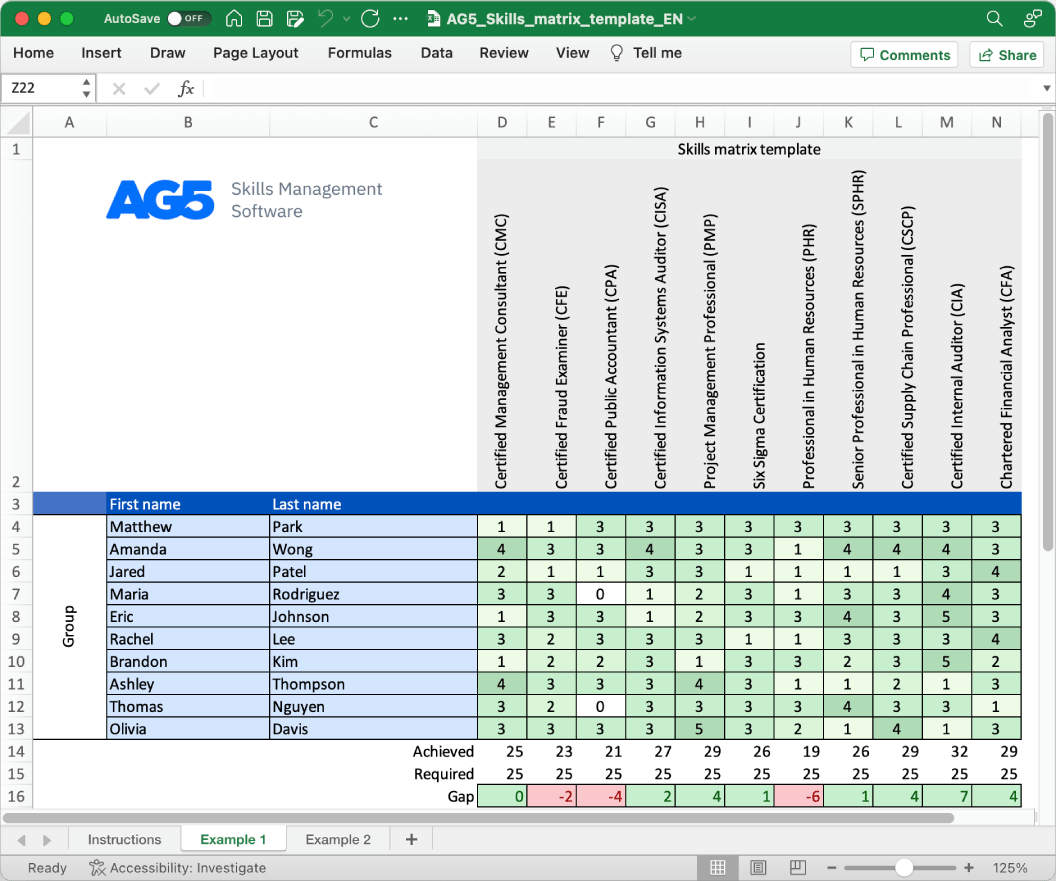Stability testing skills matrix template
A skills matrix template is a tool teams can use to assess their stability testing skills and knowledge
Download your free template here

Overview Copied
With our free stability testing skills matrix template, you will receive a clear overview of the skills that are present in your organization, as well as those that are missing. Using this information, you can develop and implement a plan to ensure that your employees’ skills are up to date, comprehensive, compliant, and ready for the future.
- Certified Stability Professional (CSP)
- Certified Stability Analyst (CSA)
- Certified Stability Specialist (CSS)
- Certified Stability Coordinator (CSC)
- Certified Stability Engineer (CSE)
- Certified Stability Manager (CSM)
- Certified Stability Technician (CST)
- Certified Stability Professional (CSP)
- Certified Stability Analyst (CSA)
- Certified Stability Specialist (CSS)
- Certified Stability Coordinator (CSC)
- Certified Stability Engineer (CSE)
- Certified Stability Manager (CSM)
- Certified Stability Technician (CST)
- Certified Stability Professional (CSP)
- Certified Stability Analyst (CSA)
- Certified Stability Specialist (CSS)
- Certified Stability Coordinator (CSC)
- Certified Stability Engineer (CSE)
- Certified Stability Manager (CSM)
Benefits Copied
Skills management software is important in stability testing, as it aids in ensuring personnel with the appropriate skills conduct the tests, leading to accurate and reliable results.
Author Copied
Revisions Copied
Tired of managing skills in Excel?
Say goodbye to Excel matrices. Start using AG5’s plug and play skill matrix software.
Recognized by G2 for Excellence in Skills Management

